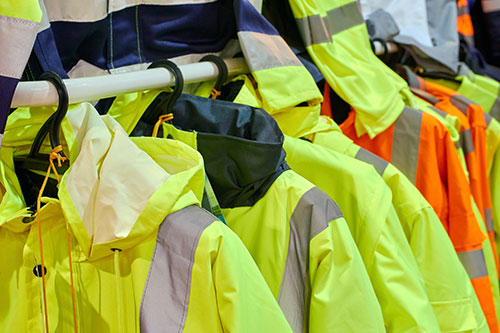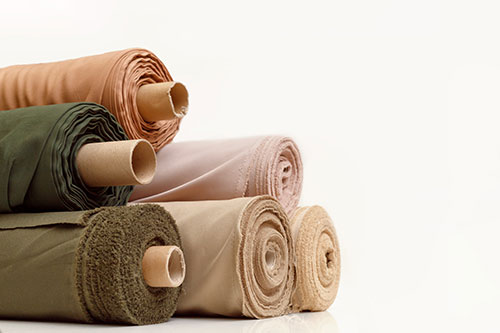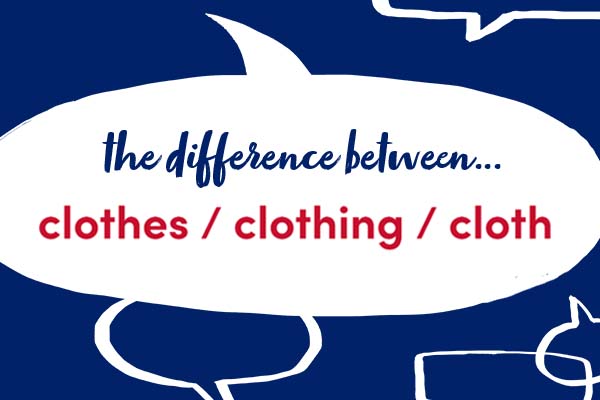This week we are looking at three words which are sometimes confused by learners of English: clothes, clothing and cloth.
clothes

Clothes is a plural noun meaning the things you wear, such as shirts, trousers, dresses, and coats.
I put away all my clothes.
Note that there is no singular form of clothes. In formal English, you can talk about a ‘garment’, a ‘piece of clothing’ or an ‘article of clothing’, but in ordinary conversation, you usually name the piece of clothing you are taking about.
clothing

Clothing /ˈkləʊðɪŋ/ is an uncountable noun meaning the clothes you wear. You often use clothing to talk about particular types of clothes, for example, winter clothing or warm clothing.
Wear protective clothing.
Some locals offered food and clothing to the refugees.
Note that there is no singular or plural form of clothing. You should say a ‘piece of clothing’ or several ‘articles of clothing’.
cloth

Cloth is fabric such as wool or cotton that is used for making such things as clothes. When cloth is used like this, it is an uncountable noun.
I cut up strips of cotton cloth.
The women wove cloth for a living.
Find out more in our English Usage article.
This blogpost is based on Collins COBUILD English Usage, written for learners of English. For more examples of English usage points, please visit: https://grammar.collinsdictionary.com/english-usage.
All opinions expressed on this blog are those of the individual writers, and do not necessarily reflect the opinions or policies of Collins, or its parent company, HarperCollins.




collins_dictionary_official
The home of living language. #wotd #wordlovers #collinsdictionary
Read our word of the week definitions and blog posts: